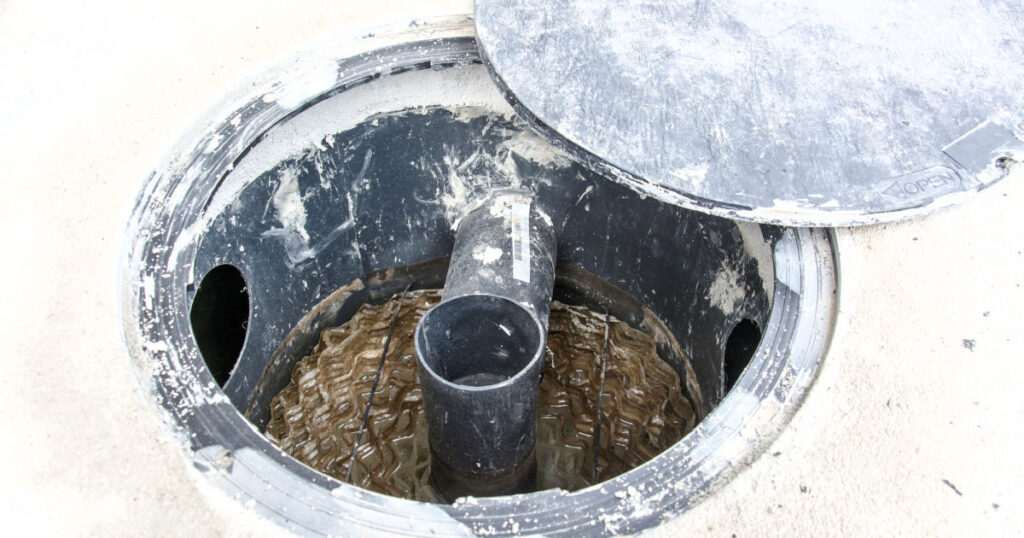Just like any of the plumbing in your house, a septic system should be “winterized” to keep it running all season long. With a few simple preparations, you should be able to prevent your septic tank from freezing in cold weather.

If you live in a cold climate, it’s likely that your septic system and your house are built to withstand freezing temperatures and icy weather. However, houses built in warmer climates are often built for just the opposite — to release heat and stay cooler.
So when a winter storm hits, extra preparations should be taken to ensure that everything keeps running as it should.
When a winter storm is on the way, we usually think to stock up on food and water, check the pipes, and make other preps to stay warm. But don’t forget about the septic tank!
Can a Septic Tank Freeze?
If it is in regular use, a septic tank itself is probably not going to freeze. That’s because the water in the tank traps heat and if you’re using it daily, there should be plenty of water in there.
What’s more likely to freeze are the pipes and lines from the house to the tank and from the tank to the drain field. These lines may not be buried deeply enough to avoid freezing or some areas may be exposed (and especially at risk).
If your septic system is in a second home, vacation home, rental, etc. — anywhere that it does not get regular use — it may be more susceptible to freezing.
How to Prevent Your Septic System from Freezing
- Use it — A septic tank with water inside is far less likely to freeze. Water running through the system will also help prevent lines from freezing. You don’t need to use it any more often than usual, just keep using it. We have a whole home generator so we can keep our septic tank operating even if the power goes out.
- Insulate it — If your septic lines are buried less than a foot underground or do not have grass/vegetation on top, you may want to add a layer of mulch for insulation. Any exposed lines should be wrapped with foam insulation designed for pipes or at the very least old towels. A thick layer of snow also serves as an insulator, so if there is fresh snow, leave it there!
TIP: Something that also seemed to help us is changing the time that our sprinklers go off. Usually they run in the middle of the night when no one is outside. However, that is when temperatures are coldest. During winter storms, we set our sprinklers to drain during the afternoon instead. That way if anything freezes up at night, the tank has already drained and hopefully the sun will help thaw lines in the morning.

What if My Septic System is Already Frozen?
The following are signs that your septic system could be frozen:
- Toilets won’t flush
- Sinks won’t drain
- Any other drains in house act as if they’re clogged
If you notice any of these issues, stop using your water and call your plumber! It’s not worth potentially damaging your system further to try to DIY a fix.
Here’s what you should NOT do:
- Do NOT pour antifreeze down the drains
- Do NOT run the hot water to attempt to thaw the lines
- Do NOT add salt to the tank